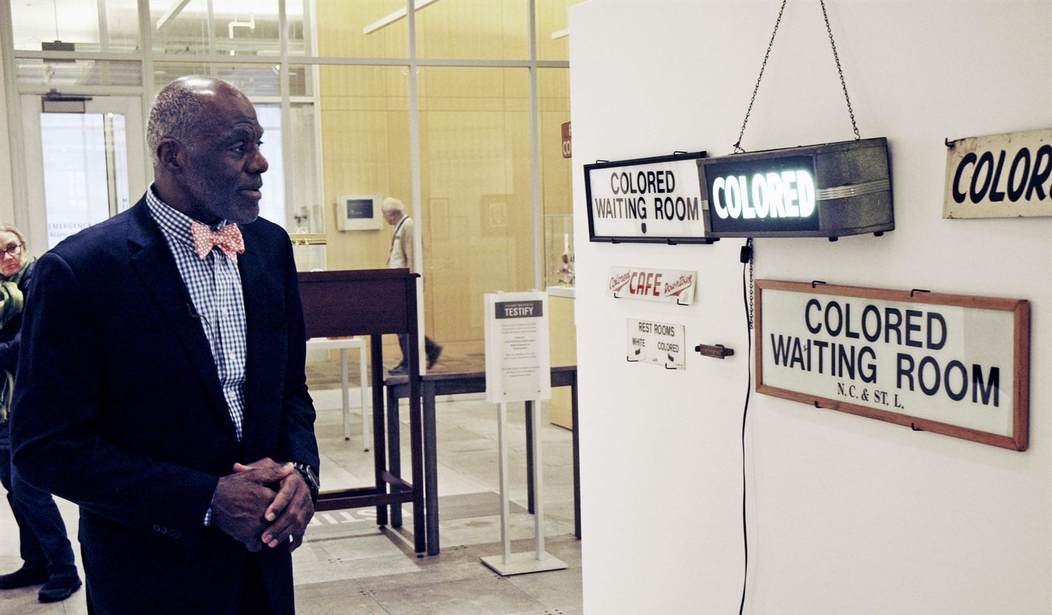At Cornell University, safety is important — in more ways than one.
In February, I covered the case of the Ivy League school’s rock climbing course.
Per a web archive, the original description went as follows:
Come climb with COE (Cornell Outdoor Education) and take part in the Cornell climbing community! We will introduce you to rock climbing movement and techniques, belaying, equipment, knots, rappelling, and safety at the Lindseth Climbing Center. Courses ensure a high degree of individual attention and a supportive space to explore the vertical world!
Sound good?
Here’s a twist:
We will also talk about BIPOC (Black, Indigenous, People of Color) individuals and groups in rock climbing.
The course was listed as “PE 1641: BIPOC Rock Climbing.”
Its stated qualification:
This class is for people who identify as Black, Indigenous, Latinx, Asian, or other people of color.
Following negative attention, a modification was made.
The new description indicated PE 1641 was “designed to enable Black, Indigenous, Latinx, Asian, or other people of color underrepresented in the sport of rock climbing to learn the sport and to feel included and supported.”
The course, to be clear, was “open to all Cornell students interested in learning rock climbing with this special focus.”
And now — nearly a semester later — students are championing the activity’s emphasis on nonwhites.
As reported by the Cornell Daily Sun, Yvonne Chan believes it creates a safe space.
[Yvonne] sees no reason to attack the existence of the course when there are eight sections of P.E. 1640: Basic Rock Climbing in addition to the one BIPOC rock climbing section. She sees the course as a valuable effort to encourage inclusion of marginalized groups, noting similar efforts by larger organizations like Brothers of Climbing, an organization which aims to increase diversity in the sport.
Speaking to the outlet, attendee Lwam Asfaw said the BIPOC part was the reason she enlisted — it made the activity more comfortable.
Student Thomas Gambra called criticism “frustrating”:
“Hearing people complain about this class, saying it’s taking away from our white peers is laughable and frustrating.”
According to Thomas, being a minority at a white institution can “create a feeling of isolation.”
BIPOC instructor Matthew Gavieta — who’s leading the course this year — asserted the focus on nonwhites is meant to improve participation in a sport considered “white-centric.”
And Michelle Croen — another class instructor — spoke against microaggressions and “sizeism”:
“From larger issues such as cost of entry and accessibility, to smaller microaggressions like the names of some outdoor climbing routes, it’s difficult to be a minority and feel welcomed in the outdoors. Just under the surface, the climbing world especially is affected by racism, sexism and sizeism.”
Cornell’s definitely trying to ensure students feel okay. In December, it required enrollees to get a flu shot — unless they’re not white.
Its official vaccination page noted the detriment of police violence:
It is understandable that the current Compact requirements may feel suspect or even exploitative to some BIPOC members of the Cornell community. Additionally, recent acts of violence against Black people by law enforcement may contribute to feelings of distrust or powerlessness.
The school acknowledged “long-standing social inequalities and health disparities” that resulted in “COVID-19 disproportionately affecting BIPOC individuals.”
Plus, people who aren’t white may not be able to go to a doctor:
Away from campus community, BIPOC individuals are not as likely to have access to preventive services or quality health care. The systems, services, and policies being implemented at Cornell seek to address these inequalities as well as the differential impacts.
Therefore, anyone not white could ask for an exemption.
In yet another act of social consciousness, last October, Cornell’s English Department changed its name:
Cornell English Department changes name to avoid perception of ‘English as a nationality’ https://t.co/c5IHnfzze6 via @collegefix
— The College Fix (@CollegeFix) October 14, 2020
Back to race-specific rock climbing, instructor Michelle heralded safety and ease:
“By creating a community of traditionally underrepresented people, we allow students to explore climbing and what it means to them on their own terms, in a comfortable, safe space.”
I suppose there’s nothing quite like feeling safe while dangerously dangling from wires.
Even so, it appears the course is especially fitting for people of privilege, as it costs the standard single-credit amount of $1,890 plus a fee of $315.
Cornell charges students $1,800 for racially-segregated rock climbing class, frantically scrubs website when confronted – https://t.co/0LPeKKB6yD
— clevelandwest (@clevelandwest) February 23, 2021
However, as pointed out by the Daily Sun, the BIPOC version is the one rock-climbing course that allows a fee waiver for those receiving financial aid.
Either way, is categorizing people according to race the best way for society to…climb?
It seems we already tried that; I suppose some believe the second time’s the charm.
-ALEX
See more pieces from me:
Virginia Does It Again, School District Issues a List of Oppressed and Privileged Identity Groups
Elementary Teacher Is Under Investigation for a Class Video Claiming Police ‘Don’t Like Black Men’
Southern Baptist Seminary President Lambastes United Methodist Church Over Drag Queen Leader
Find all my RedState work here.
Thank you for reading! Please sound off in the Comments section below.












Join the conversation as a VIP Member